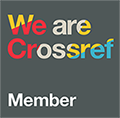The Journal of Education for Life (JEL) was first published in 1986 by Kultur Educational Institutions. It has since become a popular journal for primary and secondary school students and parents. As of 2015, JEL has transitioned to a double-blind peer-reviewed academic and scientific journal, administered by the Faculty of Education at Istanbul Kultur University.
The Journal of Education for Life (JEL) aims to enhance the knowledge base of educational science by connecting theory and practice. To achieve this goal, it publishes researches that employ qualitative or quantitative methods in various fields of education.
The Journal of Education for Life (JEL) aims to enhance the quality of preschool, primary, secondary, higher, and adult education by contributing to the improvement of processes and outputs.
Print ISSN: 1300-1272
Online ISSN: 2667-4874
DOI prefix: 10.33308
*PS: It is mandatory that submit ethics committee approval with your paper.
*PS: Please register all the authors with ORCID number while submitting your manuscript to the Open Journal System. This is the submitting author's responsibility. Please be informed that we do not add any authors after the decision.





